Assassin’s Creed: A Leap of Faith or a Plunge into Mediocrity?
The plot of “Assassin’s Creed” doesn’t stray far from the simplicity of Tetris or Arkanoid, but it offers some visual delights, with action sequences that are both well-choreographed and creatively filmed. However, one can’t help but wonder: what’s the point?
Since time immemorial, two powerful orders – the Templars and the Assassins – have been locked in a struggle for control over humanity. By the end of the 15th century, the Assassin brotherhood is on the brink of extinction. A handful of the order’s mercenaries manage to evade the Inquisitors and conceal their most prized artifact: the Apple of Eden. In the 21st century, the Templars discover a way to locate this long-lost treasure. Using their invention, the Animus, they delve into the past through the distant descendants of the Assassins. Callum Lynch, a descendant of the mercenary Aguilar de Nerha, the last person to possess the Apple, proves to be the most valuable asset in their search. The Animus reveals the location of the coveted trophy, but it also awakens the spirit of his bloodthirsty ancestor within Lynch. Callum gains the strength, agility, and determination of Aguilar, who considers the preservation of the Apple his life’s mission.
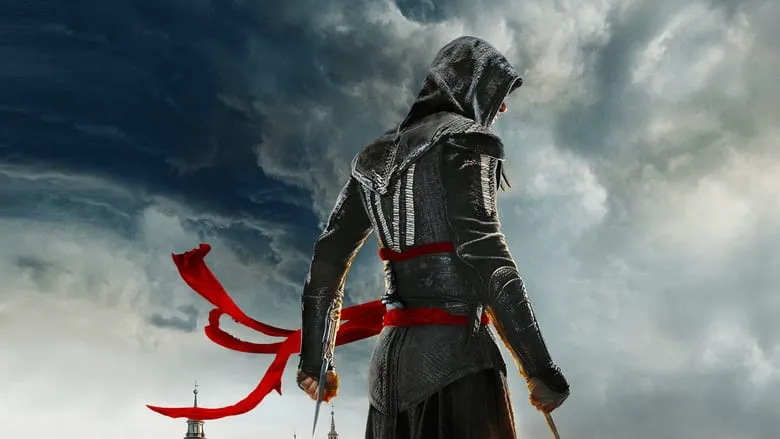 .jpg “Assassin’s Creed Film Still”)
.jpg “Assassin’s Creed Film Still”)
The creators of “Assassin’s Creed” deliberately chose not to adapt the plot of any single game in the series verbatim. The screenwriters and producers felt it was more appropriate to introduce new characters and create new circumstances for them, thereby expanding the game’s universe.
The Perils of Video Game Adaptations
Films based on video games are a risky and often unrewarding endeavor. Despite numerous failures, filmmakers are still eager to bring console and PC hits to the big screen, hoping to capitalize on the army of gamers who want to extend their experience of a beloved game by visiting the largest hall of their local cinema. However, gamers alone are not enough for such productions. A film must first and foremost remain a film, not an add-on to a video game, and this is where many enthusiasts falter. Let’s see what awaits a viewer who is not very familiar with the Assassin’s Creed series in the film of the same name.
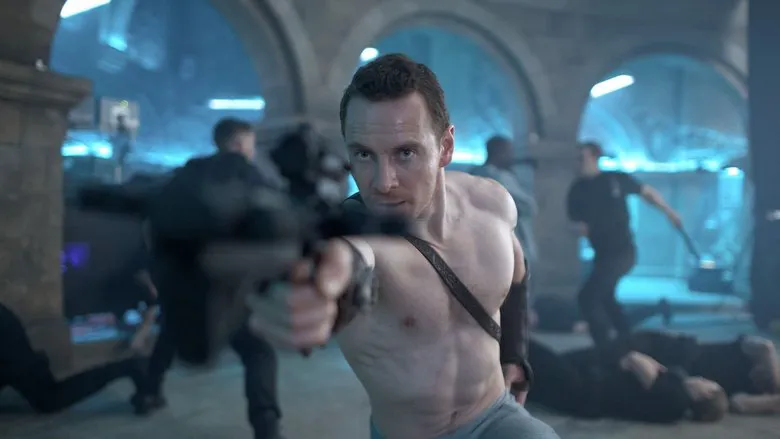 .jpg “Assassin’s Creed Film Still”)
.jpg “Assassin’s Creed Film Still”)
What awaits them isn’t particularly good. An unprepared viewer is immediately confronted with a rather vague universe. From the opening scenes and titles about the Madrid court, it’s not clear what the value of the sought-after Apple of Eden is, how it can affect human free will, why the Templars and Assassins are at odds, and why viewers should ultimately side with the latter. Choosing a side is crucial here, because even in the prologue, the order’s mercenaries declare themselves above the law and morality, calmly bringing death even where it is not particularly necessary. Why should the “average person” take their side?
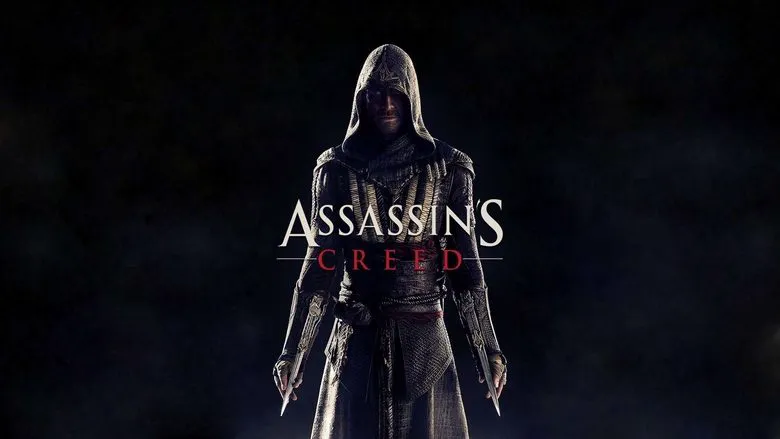 .jpg “Assassin’s Creed Film Still”)
.jpg “Assassin’s Creed Film Still”)
Logic Takes a Backseat
It gets worse from there. We move to the present day and find ourselves in stark contradiction with logic and science. Believing in “DNA memory” is forgivable for the Middle Ages, but in the 21st century, it smacks of some kind of “Lysenkoism.” The “advanced” Soviet scientists who rejected genetics also believed that mice would start being born without tails if their ancestors had their tails mercilessly chopped off. As we know, genes are a little more complex than that, but not so complex that events from five hundred years ago can be reconstructed in holographic format from a drop of blood.
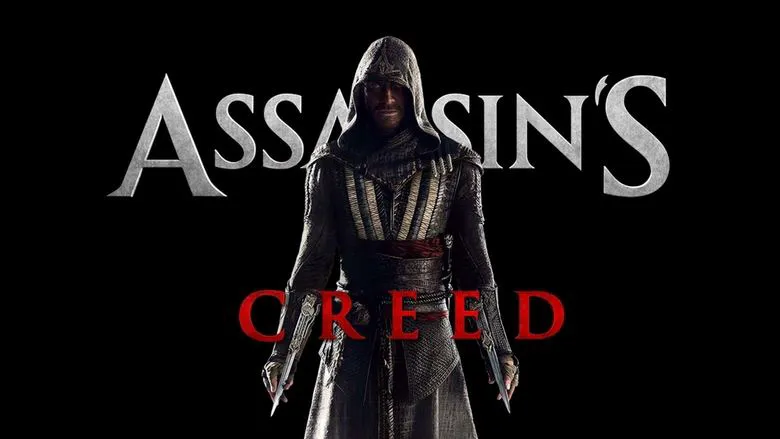 .jpg “Assassin’s Creed Film Still”)
.jpg “Assassin’s Creed Film Still”)
Of course, the fantasy of the Animus has as much right to be embodied in film as the theory of the all-encompassing Matrix or the extra dimensions of “Interstellar,” so we’ll leave the time travel to the conscience of the creators of “Assassin’s Creed.” But here’s the problem: there’s nothing else in the film. Justin Kurzel’s film is not distinguished by depth or intricacy. They went to the past three times, saw where the Apple was hidden, dug it up in the present, and used it. There are no hidden meanings, no metaphors, no rebirth of characters, no personal growth, and not even any romance. Just run-and-gun, and nothing more.
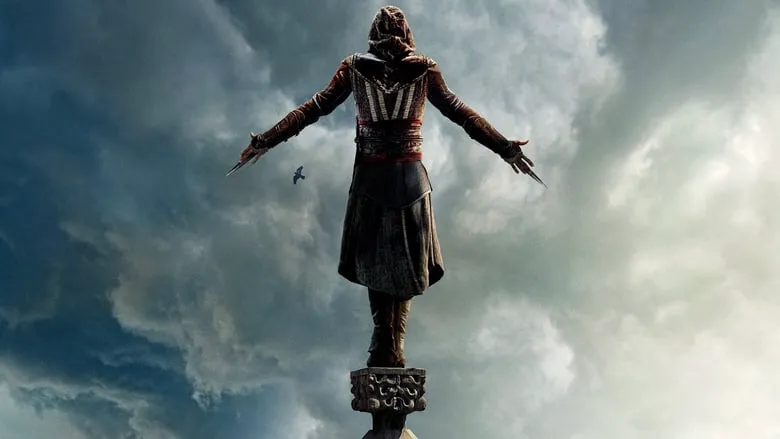 .jpg “Assassin’s Creed Film Still”)
.jpg “Assassin’s Creed Film Still”)
The stunt performed by Damien Walters, which entered the film under the name “Leap of Faith,” became one of the most dangerous in the last 35 years. Fassbender’s double covered almost 40 meters in flight.
Missed Potential
Meanwhile, the game had enough potential to raise philosophical questions, assess social changes in society, and talk about morality. But the creators of the cinematic “Assassin’s Creed” focused on action, and everything else was pushed to the background. This entails all the other problems: the actors have nothing to play, and the director has nothing to build tension from. One can, of course, argue that the personalities and characters of the assassins of medieval Spain should not be revealed; they are simply soulless and nameless killing machines. But in modern times, there is someone to reveal and how to unfold the confrontation. No, “Assassin’s Creed” is primitive and unpretentious. All the “secrets of the Madrid court” in the film fit into a couple of words and three dozen jumps.
The only thing worth noting about the work on the film is the stuntmen and the cameraman. The former really make you hold your jaw in a couple of chase scenes across rooftops, and the camera crew created two dissimilar, contrasting worlds: a sandy-dirty past and a sterile-steel present. At the very least, “Assassin’s Creed” is visually tolerable, but otherwise, the film doesn’t stray too far from the video inserts in the prologue of the latest installments of Assassin’s Creed: the same abundance of graphics and an extremely simple plot. Only this time, you’re not playing, Michael Fassbender is.